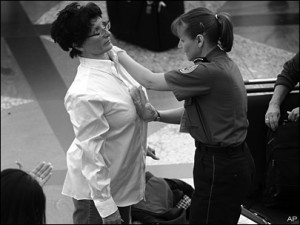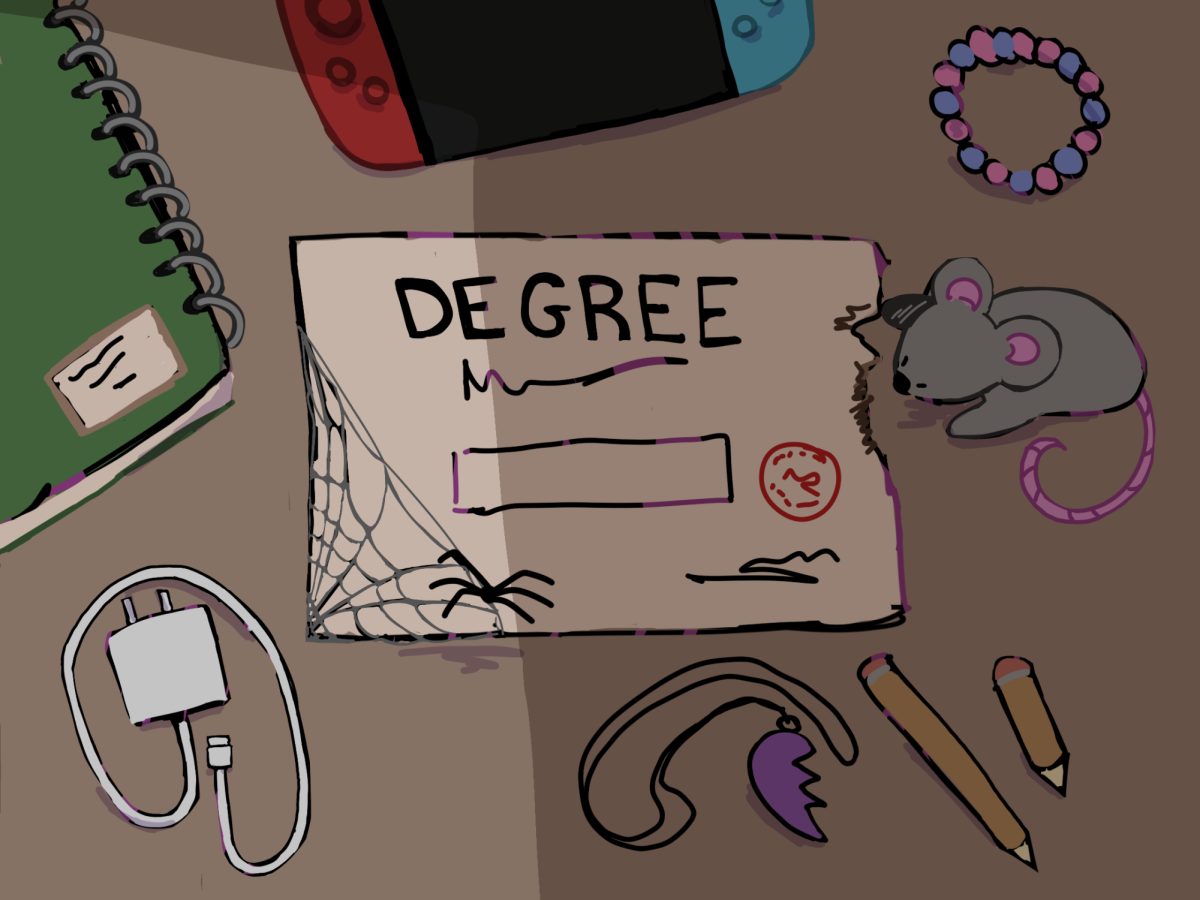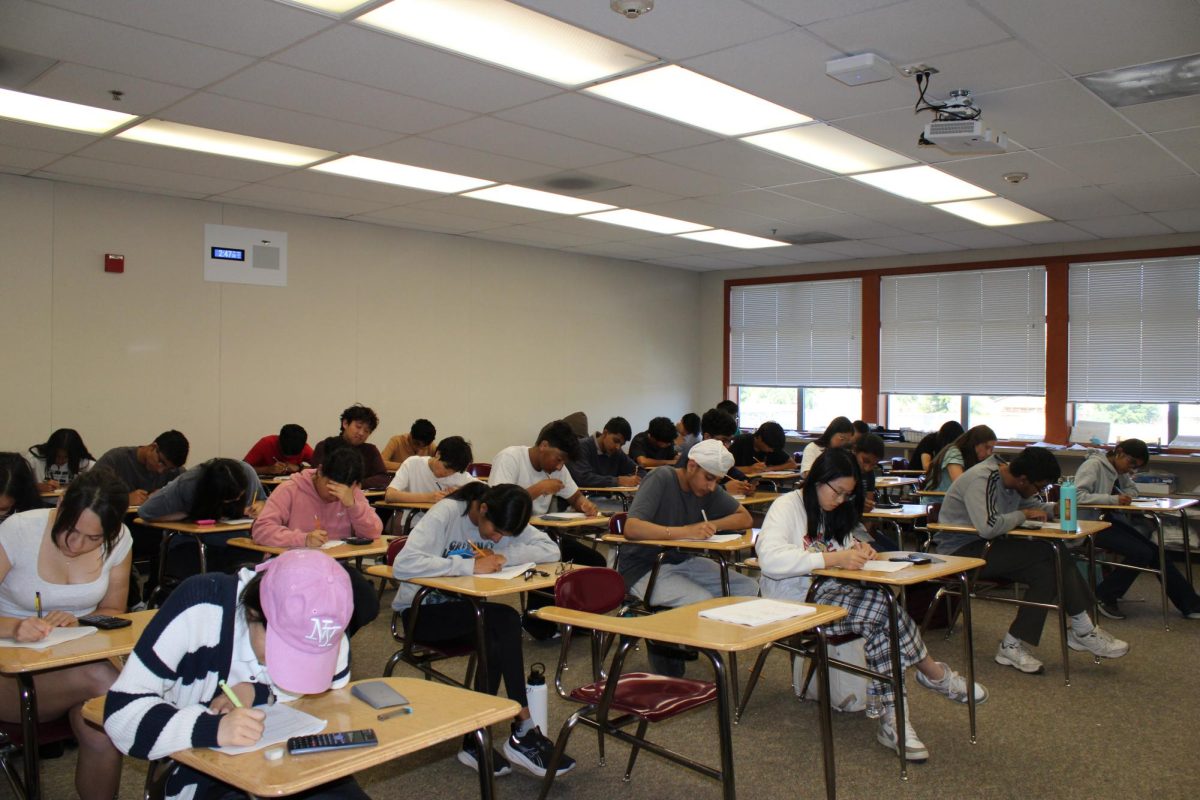
By Jacqueline Uranga
On Dec. 25, 2009, Nigerian engineering student Umar Farouk Abdulmutallab was tackled to the ground by fellow passengers when the plastic explosives hidden in his underwear failed to detonate and caught fire instead.
It was even a passenger who used a fire extinguisher to put out the flames on the wall of the plane and Abdulmutallab’s discarded pants, which passengers tore off his body.
The Christmas Day Bomber is one of over 30 failed terrorist attacks have occurred in the United States since the Sept. 11, 2001 attacks on the World Trade Center and Pentagon.
The attacks since Sept. 11 have failed because of luck, incompetent terrorists, and heroic bystanders, not because of the Transportation Security Administration (TSA) or other agencies in the U.S. Intelligence Community.
The U.S. government needs to do more to raise the quality of U.S. security instead of the current tactic of raising the quantity after every attempted attack. Presently, security resources are being used and wasted in a futile effort of making Americans feel safer.
The fundamental issue is the lack of faith Americans have in the national security system itself.
According to a 2010 ABC News/Washington Post poll, 42 percent of Americans believe the country is less safe from terrorism today than it was before Sept. 11.
No matter how many snow globes and water bottles are thrown out at airport security checks, or how many Americans of Middle Eastern descent are picked out for extra “random screening,” Americans will not feel safer and they will not be safer.
Since the Sept. 11 terrorist attacks, box-cutters, such as those used in the attacks, and other items directly involved in a terrorism plot have been banned from airplanes.
The current security system works on the idea that if other terrorists hear of Abdulmutallab’s method of setting off a bomb in his underpants, they are likely to repeat the exact same thing.
The U.S. security system, in an effort to convince the American people of their safety, escalated the initial defense precautions to include a ban of any object with a remote connection to the first item banned. Golf clubs, hockey sticks, cattle prods, ski poles, lacrosse sticks, and nunchucks are now forbidden on the cabs of airplanes.
With the goal of giving Americans the perception they are safe, U.S. security often ignores threats that would be impossible to prevent.
A terrorist may be just as dangerous wielding an improvised weapon, such as a smashed glass bottle, as they would be with a hockey stick in hand. It would seem that keeping Americans in the dark about some terrorist threats is viewed by U.S. security as the best way of making Americans feel safe.
The first terrorists to use box-cutters were successful because no airline was prepared for that kind of attack.
A main reason given for the successful resistance of passengers on the fourth plane involved in the Sept. 11 attacks was the awareness of the passengers of what kind of attack was about to occur, once their friends and family called in to report what had happened with the previous three planes.
Today, the terrorist hijacking of an airplane with a box-cutter knife is one of the few threats America is truly prepared for.
Too often in attempted terrorist attacks, the lack of preparedness from authorities results in average citizens becoming the first line of defense.
For instance, on May 1, Faisal Shahzad ignited a car bomb in Time Square that failed to explode. He was disarmed after two street vendors alerted police to the situation
Abdulmutallab’s name was not put on the “no-fly” list before his attempted terrorist attack, even after his father went to the U.S. embassy in Abuja, Nigeria, to report his concern that his son was a terrorist.
Somehow, Abdulmutallab completely escaped the attention of the State Department and law enforcement prior to his attack.
Isaac Yeffet, the security chief for El Al Israel Airlines told CNS News “Technology in general can never replace a qualified and well-trained human being.”
U.S. security could improve by implementing many of the policies used by El Al, considered the most secure airline in the world.
U.S. security would be more effective with agents interviewing all passengers and responding swiftly to intelligence information.
A year after Abdulmutallab’s failed terrorist attack, the country is not safer. The government must do more than try to convince Americans that they are being protected and actually take steps to better detect terrorist plots before they occur.


